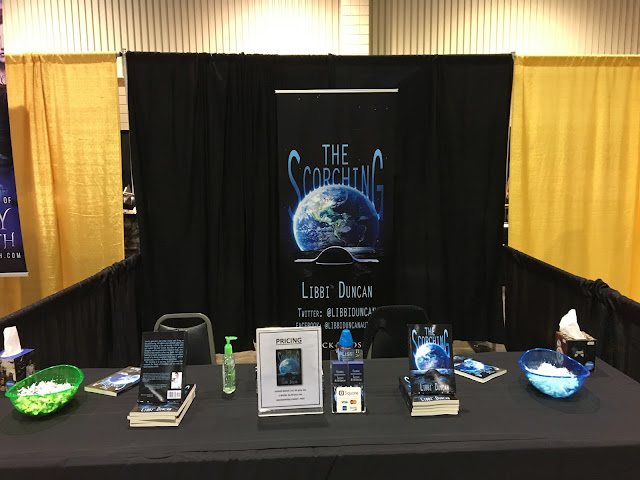My Thoughts on the Writing Process
Since I'm currently in the process of editing my book, I haven't had much time to blog lately. I've discovered that editing is, in some ways, more challenging than writing. I hope to be finished with my first quick-pass of my draft by July 4th, after which I will hand it off to my lovely team of brave test readers.
This is mainly an exercise to keep me in the habit of blogging, even when life gets in the way. Not only am I editing my book, but I'm also still working, studying Spanish, working out daily, and now managing my Twitter, which sometimes feels like a full-time job in itself. My sister is also visiting for a few days, so my schedule is pretty full. Anyway, I digress. Here's my writing process in a nutshell, for anyone who is writing, or who dreams of writing:
This is mainly an exercise to keep me in the habit of blogging, even when life gets in the way. Not only am I editing my book, but I'm also still working, studying Spanish, working out daily, and now managing my Twitter, which sometimes feels like a full-time job in itself. My sister is also visiting for a few days, so my schedule is pretty full. Anyway, I digress. Here's my writing process in a nutshell, for anyone who is writing, or who dreams of writing:
- Manage your input. Read often. Watch movies that make you think. Pay attention to the stories and mechanisms in video games or TV shows. Study the classics and new material alike.
- Pay attention to your dreams, or daydreams. If you have an idea, write it down as soon as possible.
- Develop your idea. Talk about it. Brainstorm on paper. Make outlines and lists. Create a back-story. If it helps, look up story archetypes and see where your idea falls, but try to add something new to it.
- Create characters. Write as much about them as you can. Make them unique and interesting. More will come to you as you write.
- Start writing. I like to write chronologically, but many people just write any scene that comes to mind, then they tie it all together later. Whatever works, works.
- Write every day. Even on your days off. Write with confidence. Set a goal, whether it be a word count (which is what I did), a chapter a day, a time limit, or some other marker. Using visual aids helps. I'll post a picture of my word count tracker as soon as possible, but I also have one up on my blog.
- Don't over-think the first draft. Don't edit as you write. Don't even read what you write. Just get the story out of your head and onto the screen/paper.
- Push yourself until you finish the first draft. Then rejoice! Most people don't make it that far.
- Take a breather. Most people recommend letting the finished draft "rest" for a while before you start editing.
- I ignored that advice (oops). I'm already doing a "quick" edit, mainly to catch any spelling or grammar errors, but also to fix a few things that I changed my mind about halfway through.
- Have other people read it. Tell them what you're looking for in their critique. Have them note what doesn't seem right, or what needs to be changed, but don't have them change it for you. Also have them summarize how they feel about each chapter and the book as a whole. Did they enjoy it? Was it interesting? How did it make them feel? Etc.
- Read all of the notes your test-readers make for you. Try not to be crushed if it needs a lot of work. I'm told that most first drafts are awful, so I keep telling myself to expect the worst. You should too.
- Print out a copy for yourself. Read it, and highlight areas that need work, or need to be cut, or that can be cut without changing the story.
- Compile all of the notes and use them to edit the story. Revise, rewrite, edit, until it's perfect.
- Start querying agents, or start the self-publishing process.
- ???
- Profit?
Obviously, I still have a long way to go. I have, through the various social media outlets, started to attempt building up an online presence and reputation. I'm told that agents/publishers like to see that you have the knowledge and desire to promote yourself successfully. Hopefully my hard work will pay off. Thank you all for reading, and for your support and encouragement! If you'd like to be one of my test-readers and we haven't already discussed it, please let me know!


Comments
Post a Comment